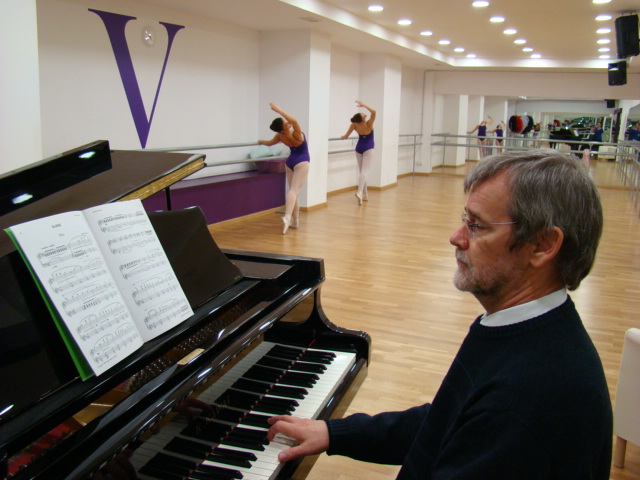by Graham Dickson-Place
The final instalment of Graham’s blog about writing syllabus music. If you’ve missed Part One and Part Two, just follow the links.
The big difference between music improvised in a class and composed for a syllabus is, it needs to be good enough to last many years. We all try to compose wonderful music in class. Sometimes it works out and sometimes it doesn’t. Our syllabus music came from instantly composed music but we had time to work on it afterwards. This music had to be good enough to last twenty years for instance. The great ballets composed by Tchaikovsky were composed for the dancers and choreographers he was working with.
The problem of using repertoire music for a syllabus is that it is almost impossible to find a piece of music, which is exactly right in all its aspects. When we composed music, we watched for highlights in the choreography and made sure that the music had the same highlights.
Another problem is that rarely is the repertoire music the correct length and so either it has to be cut, or ‘hacked’, or the exercise has to be changed to fit the music!!!
There is also a limited amount of repertoire music in existence, which you can use as syllabus music. The result of this is repetition.
One of the motives behind using repertoire or existing classical music for a syllabus I’m told is that the students are exposed to it. This is fine, but when the children hear the full-length version, or hear the music played at the correct speed, they think it is wrong.
We tend to over-use eight-count phrases in dance classes, which is a pity. The choreographer should have the liberty to construct exercises in ten-count phrases for instance. If this is the case though, I personally am not in favour of adding bars to existing pieces of classical music just to make them fit. Do we have the right to alter music composed by any of the great composers just to suit our needs? “Compose something new”!!!
The question of whether or not you would change how you would create music for a syllabus for younger children is an interesting one. The music would probably be shorter so making the use of existing music even more difficult without a lot of cutting. Maybe the music should be simpler but we shouldn’t underestimate the capabilities of younger people. Having said that, playing a ‘sexy’ tango is probably a lost cause on an eight-year old.
Another important point in my opinion is copyright and young composers. Most classical music is protected by copyright and you might find yourself having problems with the living families of dead composers. Also, there are a lot of good composers alive who would love to be paid for composing some syllabus music especially if they will receive royalties for the next twenty years!

To find out more about Graham Dickson-Place and his music, please visit http://www.musicgdp.com/

Como faço para,adquirir as músicas?
LikeLike